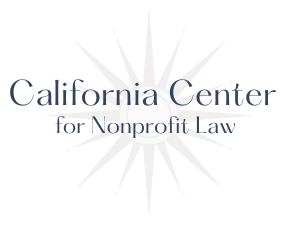The laws governing nonprofit political activity are complex and directly relate to a nonprofit organization’s ability to retain its tax-exempt status. As a result, nonprofit organizations seeking to engage in political activities, including lobbying, should always seek legal counsel before acting. The California Center for Nonprofit Law can assist you in determining your organizational restrictions on political activity and help you minimize the risk of jeopardizing your tax-exempt status. Call our offices at 949-892-1221, email us at info@NPOlawers.com or contact us online to set up a consultation about your nonprofit organization’s political activities today.
Understanding Tax-Exempt Status and Political Activities
Nonprofit organizations derive their tax-exempt status from different Internal Revenue Code sections. Each section contains different political activity restrictions for the nonprofits they govern. Failure to abide by these restrictions can lead to nonprofits risking their tax-exempt status. Unfortunately, the distinctions between kinds of political activities are not always obvious, and nonprofits regularly find themselves in trouble having accidentally stepped outside of the law and legally permitted activities. Therefore, fully understanding and avoiding these issues is critical.
501(c)(3) Charitable Organizations
Many charitable organizations receive tax-exempt status under 501(c)(3) of the Internal Revenue Code. This tax-exempt status limits charities in the amount of legislative lobbying they can perform to an “insubstantial” degree, which is generally considered less than five percent of their time, budget, and activities. Alternatively, 501(c)(3) organizations can use the 501(h) expenditure test to place specific dollar limits on their lobbying activities, with an overall cap of $1 million, less any lobbying activities by volunteers.
However, 501(c)(3) prohibits charities from participating in campaigning activities. Campaigning involves activities that support or oppose any candidate for any elected office at the local, state, or federal level or any specific political party. A charity engaged in campaigning risks losing its 501(c)(3) status. The IRS also can impose certain excise taxes on the charity for violating this prohibition.
501(c)(4), 501(c)(4), and 501(c)(6) Nonprofit Organizations
Social welfare organizations that enjoy tax-exempt status under 501(c)(4) can engage in some political activities, such as legislative advocacy or lobbying to further their exempt purpose. These rules also apply to labor and agricultural organizations under 501(c)(5) and business leagues under 501(c)(6).
Other permissible political activities include participating or intervening in political campaigns on behalf or in opposition to candidates for public office. However, these activities may not be the primary activity of the social welfare organization, as those activities do not promote social welfare. Furthermore, these organizations may be taxed on their expenditures for political activities.
Nonprofits and Political Advocacy
Advocating for or against ballot initiatives or referendums during elections does not qualify as campaigning. As a result, all nonprofit organizations may engage in this type of policy advocacy without endangering their tax-exempt status. However, campaign disclosure rules, as well as tax law limits and disclosures, still may apply.
Contact Us for Nonprofit Legal Assistance Today
The California Center for Nonprofit Law has the knowledge and expertise to serve the legal needs of politically active nonprofit organizations. We can ensure your organization complies with the law addressing tax-exempt status, contains the proper provisions in its bylaws and articles of incorporation, and establishes a board of directors that complies with all relevant laws. In addition, a lawyer at the California Center for Nonprofit Law can advise you and answer your questions about the exact restrictions on political activity for your nonprofit organization under the Internal Revenue Code. Contact us today at 949-89-1221, via email at info@NPOlawers.com or online to learn more about how your nonprofit organization can engage in political activities while protecting its tax-exempt status.

